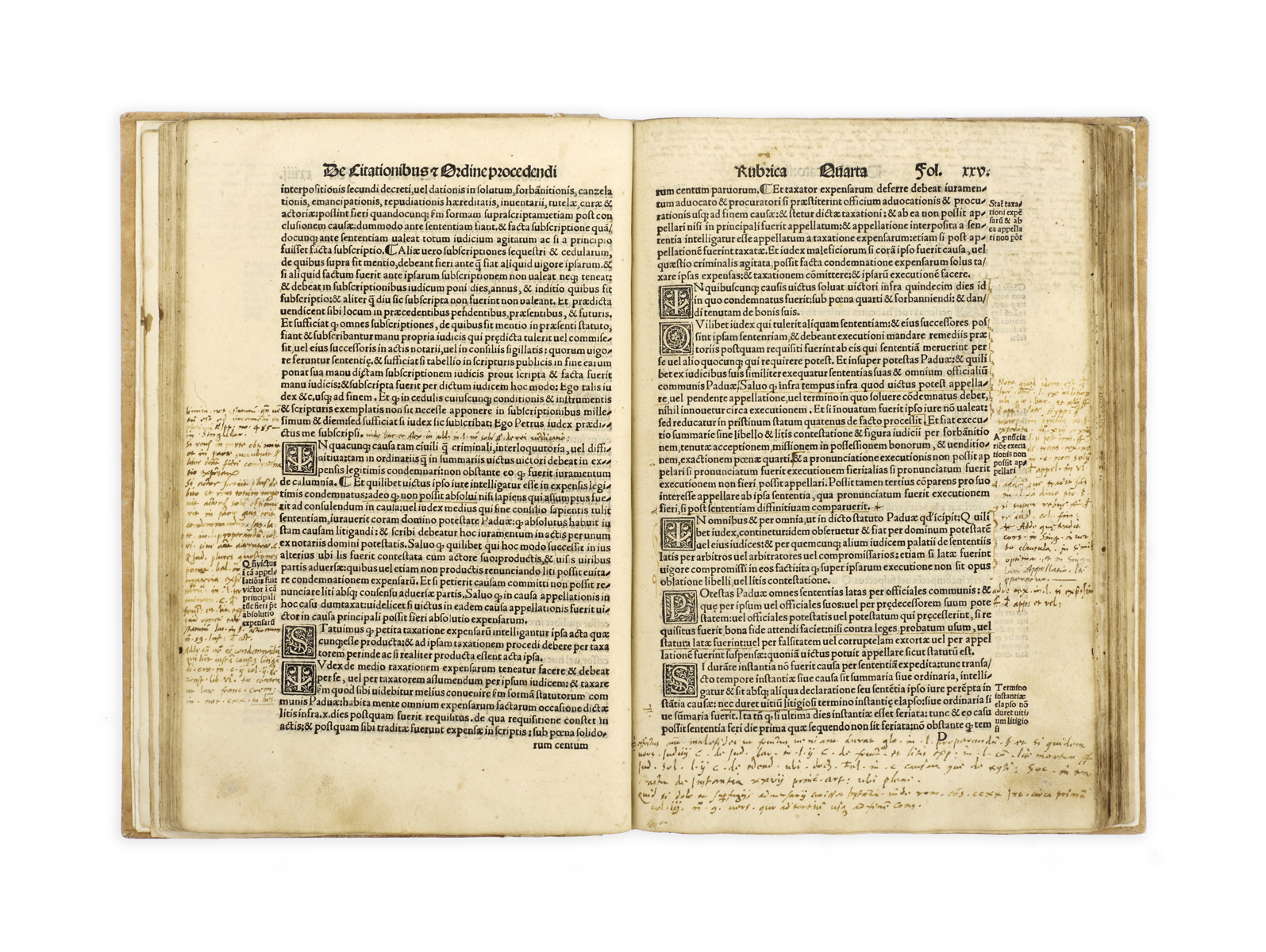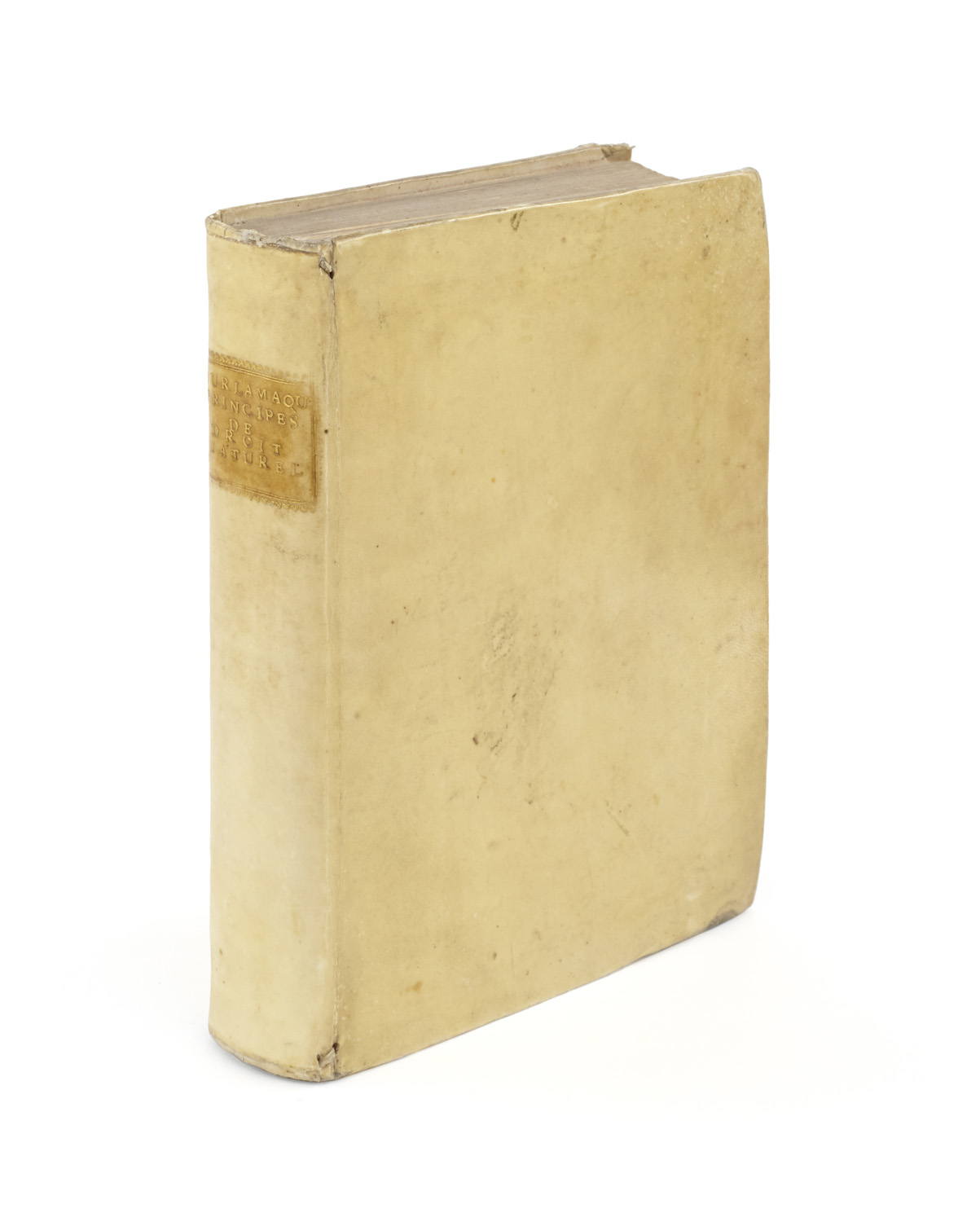WEYLAND, John.
Observations on Mr. Whitbread’s Poor Bill, and on the Population of England: intended as a supplement to A Short Inquiry into the Policy, Humanity, and Past Effects of the Poor Laws, &c.
London, J. Hatchard, 1807.
Two works in one vol., 8vo, pp. [ii], 65, [1] advertisement; xvi, 176; with the ink inscription ‘Thos. Gr. Estcourt Esq. MP. / from the Author’ to the title of the second work; three paper repairs to the title of the first work, not affecting text, some insignificant light browning and spotting in both works, but still good copies, bound together in calf-backed cloth boards, chafed at extremities, spine lettered gilt, raised bands; from the James Bonar Bequest at the Adam Smith Class Library, with its bookplate to the front pastedown.
Added to your basket:
Observations on Mr. Whitbread’s Poor Bill, and on the Population of England: intended as a supplement to A Short Inquiry into the Policy, Humanity, and Past Effects of the Poor Laws, &c.
First edition of each work. The barrister John Weyland (1774–1854) ‘was a well-to-do man whose landed possessions were extensive enough for him to be a magistrate in three counties, Oxfordshire, Berkshire and Surrey’ (James, p. 372). In 1807, he wrote two works supporting the poor laws, entitled A Short Inquiry into the Policy, Humanity, and Past Effects of the Poor Laws and Observations on Mr. Whitbread’s Poor Bill. A third work on the subject, The Principles of Population and Production followed in 1815. The following year marked the appearance of his 500-page magnum opus, the controversial Principles of Population and Production, a work of sufficient merit to provoke an immediate reply from Malthus in his Additions to the Fourth and former editions of an Essay on the Principle of Population (1817).
Malthus was consistently opposed to the Poor Law system, though his line of reasoning altered between the first and fifth editions of his Essay. Malthus feared that the system encouraged the poor to have larger families than they (or the country) could afford; Weyland was in the opposite camp, arguing that England needed a higher birthrate in the countryside to compensate for the high infant mortality rate in urban areas where most people lived.
The second work was born out of the Observations. In his prefatory remarks, Weyland outlines his reasons to the ‘Country Gentleman’ for producing the pamphlet: ‘You must allow me … to observe, that you have considerably misunderstood, and misapplied, those parts of my “Observations on Mr. Whitbread’s Poor Bill, and the Population of England,” which relate to Education: and you have done so in common with many others, who, enamoured of the theoretic beauty of new systems of Education, and too hastily concluding, from a confined observation of their beneficial results in particular instances, that they are calculated for universal practice, feel impatient at the interference of sober reasoning and experience; which would suggest means to prevent an extensive misapplication of the public money, and a general disappointment by the failure of inadequate measures hastily adopted. I am sure you will agree, that such consequences would inevitably give a fatal blow, for the future, to the success of rational plans for the general Education of the lower orders’ (p. 1). In general, Weyland ‘deprecated too much education for the poor, and affirmed that a certain degree of hardship was a necessary incentive to industry’ (DNB XX, 1301).
The recipient of our copy is Thomas Grimston Bucknell Estcourt, MP for Devizes from 1805 to 1827 and for Oxford University from 1827 to 1847. He was ‘one of the best known tory members of the House of Commons during the first half of the nineteenth century. He always refused to take office, and regarded the honour of representing the university of Oxford in parliament as being the highest in any one’s grasp. With his colleague, Sir Robert Inglis, he persistently opposed every attempt at parliamentary or religious reform in the name of the university’ (DNB VI, 875).
1st work: Goldsmiths’ 19489; Kress B.5278.
2nd work: Goldsmiths’ 19723; not in Kress.

